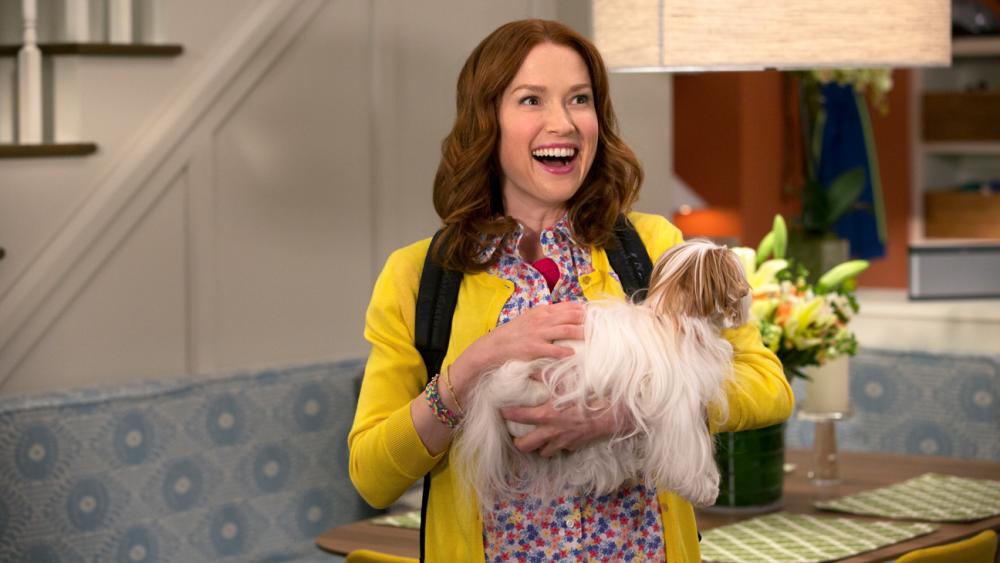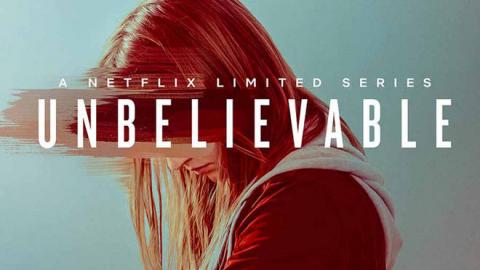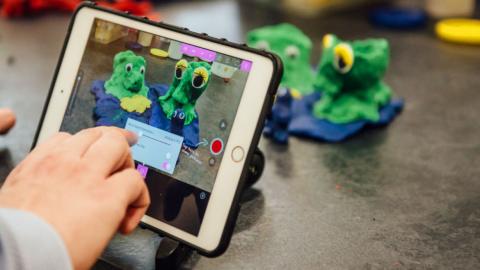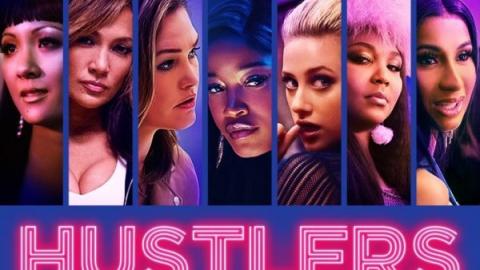Are Productions Made for Streaming Inherently More Progressive than Network TV Shows?
Share with friends

Streaming originals were recently called their own genre by the New York Times, because of innovative stylistic decisions that allow for binge watching. Indeed, there is something different about a Netflix or Amazon show than a network show or even HBO show, even if that difference is hard to pin down.
Streaming originals were recently called their own genre by the New York Times, because of innovative stylistic decisions that allow for binge watching. Indeed, there is something different about a Netflix or Amazon show than a network show or even HBO show, even if that difference is hard to pin down.
The departures are not limited to aesthetics, which are the primary differences the NYT focuses on. Instead, as I will argue, the post-network system in which streamed content exists allows these shows to be considerably more progressive in content than traditional television narratives, although they certainly have no stranglehold on progressive content. In order to make my point, I will consider shifts in sitcom content between both streamed and primetime sitcoms. Particular attention will be given to a show from each of the major streaming services including Unbreakable Kimmy Schmidt (Netflix), The Awesomes (Hulu), and Transparent (Amazon).
Before I go any further, it would be best to briefly discuss traditional sitcom content. It has been well established by media theorists that sitcoms conventionally serve to reinforce the status quo. That is, sitcoms have been overwhelmingly regressive in their politics throughout history. Take, for example, some of the earliest sitcoms, such as Leave it to Beaver, that functioned to legitimize the patriarchal family structure of the mid-20th century. Although some early sitcoms, such as Norman Lear’s All in the Family, were conceived with the intent of being progressive and forward thinking, malignant sympathy structures allowed for the misreading of satire as sincerity, such as those who identified with the bigoted loudmouth Archie Bunker.
More recent sitcoms are not necessarily more progressive than their predecessors. The Cosby Show, for example, seems to be progressive given its predominantly black cast, but is supportive of traditional conservative values, especially those relating to the family. Cosby has been an outspoken supporter of conservative values, such as that black people should blame themselves for the racial achievement gap. Of course, it must also be noted that critics have argued that The Cosby Show could not have avoided cancellation had it tried to take on racism, because this would have alienated white audiences.
The Cosby Show inspired Married…With Children’s attack on family values (the show was conceived as Not the Cosby Show) and helped inspire the highly dysfunctional titular family in The Simpsons. These shows, which helped launch the success of the FOX Network, were generally progressive in politics because they could afford to be. As they did not attempt to appeal to as large an audience as possible, FOX was willing to take risks in terms of the content it allowed on the air. The same phenomenon can be seen in the rise of Comedy Central and its most famous show, South Park.
So, before I’ve even considered the politics of streaming content, progressive ideology has been recognized as an established trend. Any time a new network that can afford to market itself to a niche market, content changes – typically to become more progressive or weird. As can be seen in the case of FOX, the transition to mass market appeal meant the network became more conservative in content. Comedy Central, however, continues to hold a much smaller market share than FOX, which would explain why The Simpsons has gotten less politically charged and South Park has become more political.
But what is there to say about the streamed shows? Let’s start with The Awesomes, a Hulu original, because it is the least revolutionary of the shows to be discussed. The Awesomes satirizes the hero archetype through its titular superhero team made up of misfits and non-heroes. Of the heroes, the only truly heroic character, Hotwire, is initially a villain, a minority, and a woman with an engineering degree from MIT. The leader of the superhero team, Prok, has no real powers and is often mistaken for an eight year old boy. The team also includes: an elderly woman, a middle school-aged Asian child, a black man with severe psychological issues, a homosexual man, and the world’s strongest man – who has the mental capacity of a child.
The show’s formula challenges the archetypal treatment of the hero as a hyper-masculine male figure with the narrative purpose of saving a helpless female potential sexual conquest. Prok is often beaten up by women through the show’s run, and the traditionally heroic characters in the show (Perfect Man, a perfect man, and Mr. Awesome, Prok’s dad) are not positively portrayed. Perfect Man is arrogant, egocentric, and generally unlikable. Mr. Awesome is the primary villain in the show’s most recent season – hardly a stereotypical heroic representation.
Perhaps the most successful streamed show, Transparent, follows the life of a family whose father decides to transition into a woman. Perhaps most notable about Transparent is its treatment of its main character, Maura Pfefferman, played by Jeffrey Tambor. Throughout much of the history of sitcoms and comedic films, male characters don women’s clothing for comedic effect. More recently, this can be seen in Arrested Development (Tobias as Mrs. Featherbottom).
Instead, Transparent treats Maura in a dignified light. Her gender identity and appearance are never undermined in the show; neither are ever treated as punchlines. Furthermore, Tambor plays an uncaricatured and poignant character in Maura; she is more than her gender identity. Although Tambor has been criticized by some for playing transgender, his portrayal of the character has been universally well received, and has been called “career defining.”
The final series this argument will consider is the Netflix Original, Unbreakable Kimmy Schmidt. Kimmy Schmidt was conceived of by Tina Fey, and, following the conclusion of 30 Rock, was set to be Fey’s next NBC mainstay. However, after purchasing the pilot, NBC sold the show to Netflix which immediately gave the series a two season order. Unbreakable Kimmy Schimdt is important for several reasons: the show features a cast with no heteronormative white male stars and is a fairly evident excursion in feminism. The show’s premise does nothing to hide this; Ellie Kemper plays a survivor – Kimmy Schmidt has survived years in an underground bunker after being kidnapped.
As is noted in the show’s theme song, Schmidt survives because “females are strong as hell,” and because of her outlook on life. In the show’s pilot, Schmidt tells her roommate, Titus, that, “You can either curl up in a ball and die […] or you can stand up and say, ‘We’re different! We’re the strong ones! And you can’t break us!’” Fey created a show where minorities (a victimized female and a gay black male) fight back against the oppressive patriarchal system to which they have been subjected.
The show’s cast is notably oppositional to the traditional sitcom identities. The most notable white man in Unbreakable Kimmy Schmidt is a cult leader played by John Hamm. And the show’s progressive casting does not stop with its stars; Jane Krakowski’s character is Native American, and her parents are portrayed by Native American actors. Although Krakowski has been criticized for playing a Native American, it is notable that she portrays one of the only Native American characters on TV and does so in a way that resists caricature.
But are these streaming shows really that different from premium cable offerings like Starz, Showtime, and HBO? In a word: no. Although premium cable shows may treat issues slightly differently, they still tackle many of the same issues. Starz’s short-lived Party Down, for instance, often tackled tropes such as drugs, orgies, and homosexuality without losing sight of its main conceit thanks to its hyper-episodic format (each episode has a different setting and relies extensively on guest stars). Showtime’s United States of Tara portrays a woman with dissociative identity disorder (DID) without painting her as a helpless victim or alienating her from society.
These examples are not to say that HBO, Showtime, and Starz deal with controversial issues perfectly. Sex and the City, which aired on HBO, has been called almost anti-feminist because it deals with women as they relate to, and are often powerless to, the desires of men. Girls, also an HBO show, has been similarly criticized and has also been critiqued for giving a white-washed New York City. The Ali G Show was heavily criticized and called “an alibi for racism.” This is not to say that streamed originals are without fault; however, the most popular streamed comedies (which also include Difficult People, Bojack Horseman, and Masters of None) follow a more generally progressive trend than premium content shows. The Mindy Project, however, which will be considered later, is a notable exception to this trend.
Whether our typical concept of feminism is really progressive is another consideration. Although female representation in comedy still lags far behind that of males, comics like Sarah Silverman, Iliza Scheshinger, and Amy Schumer have helped push the meaning of feminism away from the mere presentation of empowered female characters and they have also helped move the hyper-sexual woman into the mainstream. However, Unbreakable Kimmy Schimdt’s treatment of Kemper as not a female role model but a human role model transcends such banality. Schimdt represents a character not running from, but overcoming her past and making the best of an unfortunate situation. She represents the sunny side of survival, not the joys of female sexuality. And, most importantly, she is not dependent on men for happiness (although Schimdt is probably not a huge step up from Tina Fey’s Liz Lemon who ends 30 Rock with a husband who is a stay at home dad).
But are streaming services only providing one end of a niche market? Are they working to completely ignore those not interested in progressive politics? The most notable example of a deviation from what has been discussed thus far is Hulu’s treatment of The Mindy Project. I must admit, I have not watched any of the Hulu rebirth of the show, but you can read a well written analysis of the show’s departure from feminism here. This example is confusing because the show had a well established feminist tone, which changed when the show left primetime.
Perhaps streaming services feel no need to produce hegemonic content because of the stranglehold it currently has on primetime. Shows like Last Man Standing are fairly obviously non-progressive, and even Modern Family, despite its surface diversity, largely functions similarly to The Cosby Show. Either way, streamed content certainly does not have the patent on progressive material and is certainly not the only place one can see socially conscious comedy today. Comedy Central’s current programming, for example, is perhaps some of the most forward thinking on TV. However, this largely depends on your preferred reading of South Park, which could be the subject of another article entirely.




